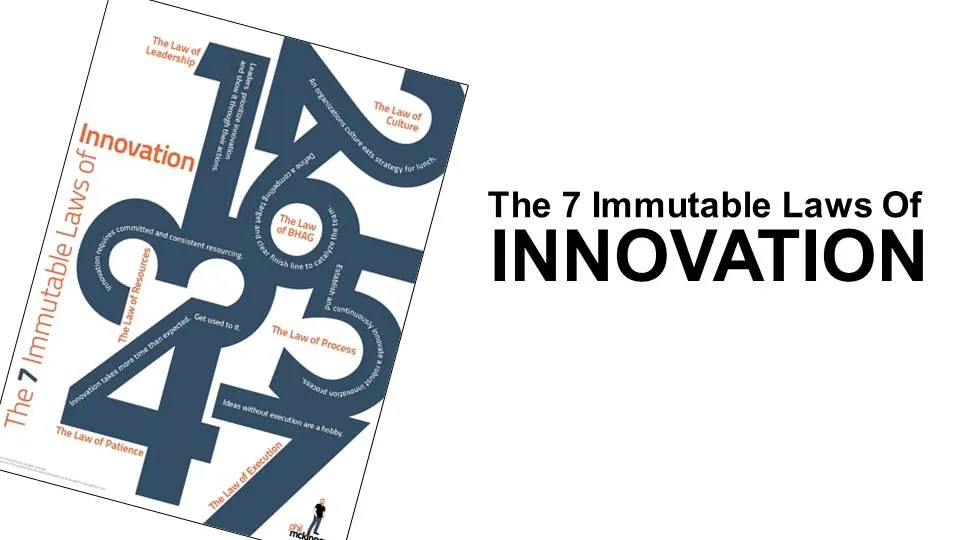Innovation
These essays on innovation cover a wide range of topics, from the basics of innovation to detailed case studies and examples. Each essay is designed to give readers an understanding of the principles that drive innovation while providing practical advice on creating successful innovations. Through these essays, I aim to help readers better understand the process of innovation and use it more effectively in their own lives.
Law of Innovation #3 – The Law of Resources
In the 7 Immutable Laws of Innovation, the Law of Resources states: Innovation requires a committed level of resources (people, money, time, equipment) over an extended period of time. The level of resourcing is the validation for the importance and commitment the organization devotes to innovation

The 7 Immutable Laws of Innovation – Follow them or risk the consequences
. ? Over the years of being in the innovation space, I’ve discovered a set of laws by trial and error. I have the scars from the school of hard knocks to validate that these 7 laws of innovation are critical for innovation success. If you violate any one of them, the consequences can be […]

The ultimate of constraint based innovation – burn the boats!
Seth Godin recently made a post on his blog about putting yourself into an impossible position and then setting back and watching incredibly things happen. I’m a big believer of constraint based innovation where leaders purposefully restrict some key resource(s) (people, money, time, etc) and then f

Why is it that most organizations fail at innovation leadership?
In most organizations these days, decision making is held in the hands of the few. This is especially true when it comes to innovation. Rather than taking advantage of the passion, insight and expertise of the entire organization, the executives make the call on what ideas to consider, what ideas t

Why best practices does not equal best strategy (video)
Best practices for innovation makes no sense. The consulting industry is built up on the idea of taking the “best” from each of their clients and merging them together and then selling them to all the companies within a given industry. So why is this a bad idea? Best practices make everyone the same

Ignore The Obvious speech on Innovation at Argyle Executive Forum (slides)
This morning I gave a keynote at the Argyle Executive Forum event in NYC. The title of the talk was “Ignore The Obvious” covering a wide range of areas to help the audience better understand and use innovation as a competitive advantage: Doing the obvious is what everyone expects Doing the obvious

CIO’s have to take the strategic lead for their organization
Rich Karlgaard, Publisher of Forbes, and I had a recent discussion on the changing role of the CIO. When I was a CIO at a public company (Teligent), my role was clearly defined by my boss at the time, Alex Mandl. One of Alex’s first guidelines he gave me was to make sure his name […]

How to teach kids to be more creative (video)
With the transition from the information/knowledge economy to the creative economy, it’s more important than ever to make sure our kids are ready to compete in the workforce. The reality is that the schools are not preparing them so it falls on the community (parents, grandparents, aunts, uncles, et

What is the role of the CTO?
I was recently interviewed by Rich Karlgaard, Publisher of Forbes on the role of the CTO and how it balances the near term needs of the organization while also making sure that there is a robust pipeline of ideas to meet the future needs of customers. Rich also gets me to talk about what devices […


